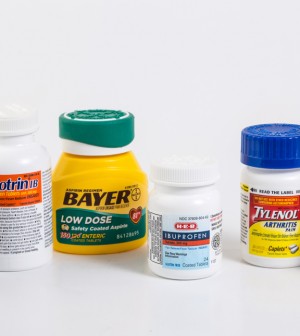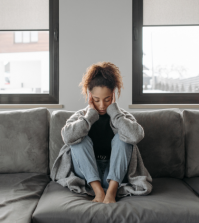- Beneath the Surface: Revealing Life’s Goals nurtured from a Spiritual SeedPosted 1 day ago
- How We Kept Marital Peace while Traveling the World with Our KidsPosted 2 weeks ago
- How I Coped with Feeling Lost in a Changing SocietyPosted 2 weeks ago
- The Unexpected Liberation of a Butt DialPosted 1 month ago
- Why is France making abortion a constitutional right?Posted 2 months ago
- Being a WomanPosted 2 months ago
Fertility Compromised By Common Pain Medications, NSAIDS - SW

By Deborah Mitchell from our partners @NaturallySavvy
Young women who are having difficulty getting pregnant may have the reason sitting in their medicine chest. The findings of a new study suggest that regular use of nonsteroidal anti-inflammatory drugs (NSAIDs) by women of childbearing age may have a negative impact on their fertility.
Women who are having problems with fertility can be facing a wide range of issues. Causes of infertility in females can include polycystic ovary syndrome (PCOS), hypothalamic dysfunction, premature ovarian insufficiency, endometriosis, damage to the fallopian tubes (from infections or surgery), benign polyps or tumors of the uterus or cervix, or uterine or cervical abnormalities. Frequently, the cause of infertility is not known.
Perhaps one of those unknown causes is the use of NSAIDs, some of which are available over the counter. The study results were presented at the European League against Rheumatism Congress 2015 in Rome by Sami Salman, MD, from the University of Baghdad.
To arrive at their findings, a research team evaluated 39 women of childbearing age who suffered with minor back pain. Before the women started the study treatment, they underwent an ultrasound to document the size of their ovaries and measurement of their progesterone levels, a hormone necessary for ovulation.
The participants were given one of four treatments: placebo or the NSAIDs diclofenac (by prescription), etoricoxib (not FDA-approved in the US), or naproxen. Treatment began on day 10 of their menstrual cycle, which ensured a follicle had developed so it could release an egg when a woman ovulated.
After 10 days of treatment, all the women underwent another ultrasound. Here’s what the researchers found:
- “Ovulation was far less frequent in patients who were on NSAIDs,” noted Salman. In fact, diclofenac was associated with a 93 percent reduction in ovulation, while both etoricoxib and naproxen were associated with a 75 percent decline.
- Progesterone levels decline, which means ovulation was compromised
- About one-third of the women developed a cyst because their follicles had failed to rupture and release an egg
- When half of the participants returned the following month to have their ovulation checked, all of them ovulated normally once they stopped taking NSAIDs.
The return of ovulation after stopping use of the NSAIDs indicates that the effect of the medications on fertility is reversible. However, as Salman pointed out, “these findings highlight the harmful effects NSAIDs may have on fertility.” When it comes to using these pain relievers, timing may mean a lot to young women who want to become pregnant.
Regular use of NSAIDs is more common among older adults for conditions such as arthritis, bursitis, tendinitis, and other inflammatory conditions. However, regular use of such pain relievers is not uncommon among younger women. Therefore, women who are having difficulty getting pregnant and who are using NSAIDs routinely should talk to their doctor about finding alternative ways to manage their pain.
 Deborah Mitchell is a freelance health writer who is passionate about animals and the environment. She has authored, co-authored, and written more than 50 books and thousands of articles on a wide range of topics. Currently she lives near the ocean in Delaware.
Deborah Mitchell is a freelance health writer who is passionate about animals and the environment. She has authored, co-authored, and written more than 50 books and thousands of articles on a wide range of topics. Currently she lives near the ocean in Delaware.







